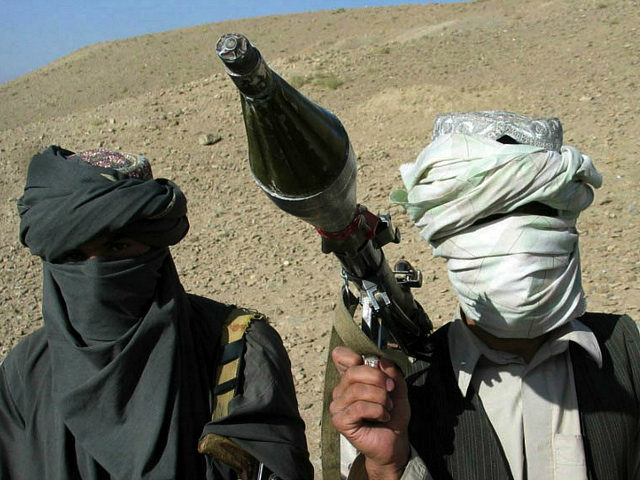A U.S. drone strike in Afghanistan targeting the region’s Islamic State (ISIS/ISIL) branch in their stronghold of eastern Nangarhar province killed top Pakistani Taliban-linked jihadist Umar Khalifa on July 9 along with four other terrorists, according to the Pentagon and officials from Pakistan.
Afghanistan’s Nangarhar province is the Afghan-Pakistan region’s offshoot of the Islamic State known as the Khorasan Province (IS-KP/ISIL-K).
The province borders Pakistan, a country that has been accused by the United Staes and Afghanistan of serving as a safe haven for various terrorist groups, including the Taliban, al-Qaeda, and the Haqqani Group.
Khalifa was identified as the leader of the Tariq Gidar Group, a faction of the Pakistani Taliban officially known as Tehreek-e-Taliban (TTP), which although it has links to the Afghan Taliban, it is considered a separate group.
The State Department designated the TTP-linked Tariq Gidar Group, as a global terrorist organization in May. IS-KP was deemed a terrorist group by the State Department in January, nearly a year to the day after it announced its presence in Afghanistan.
The deceased TTP faction chief is known by several other names including Khalifa Umar Mansoor, Umar Narai, and Khalid Khurasan. He is reportedly responsible for orchestrating the December 2014 school massacre that killed more than 150 people, the vast majority of them children. TTP claimed responsibility for the attack.
Khalifa is also reportedly behind a deadly TTP attack on Pakistan’s Bacha Khan University in January 2016 and another assault on a Pakistan’s Peshawar air force base in September 2015, which was also linked to TTP. At least 21 and 29 people were killed in the attacks, respectively.
In a July 13 statement, Pentagon Press Secretary Peter Cook acknowledged:
Khalifa orchestrated multiple terrorist operations in Pakistan to include the January 2016 attack on Bacha Khan University, the September 2015 Badaber Air Force Base attack, and the December 2014 Peshawar school attack that resulted in the deaths of more than 130 children.
While this strike was taken pursuant to U.S. rules of engagement and counter-terrorism interests, the specific relevance it has to Pakistan and Afghanistan’s security underscores the common security interests shared by the United States, Afghanistan, and Pakistan on matters of terrorism. The United States maintains a robust counter-terrorism partnership with Afghanistan and Pakistan and we recognize the sacrifices made on behalf of our respective militaries to pursue terrorists for the sake of regional peace and security.
Pakistan’s chief of army staff recently issued a directive to all his commanders, intelligence agencies, and law enforcement agencies directing them to take action against jihadists seeking to attack Afghanistan, noted Cook.
Until June, President Barack Obama had taken away the U.S. military’s authority to offensively attack the Taliban, forcing American commanders to wait for an attack to fully develop before being able to take action.
Now, the U.S. military has the authority to proactively and defensively attack the Taliban, therefore preventing a potential attack before it occurs, explained U.S. Secretary of Defense Ash Carter and U.S. Gen. John Nicholson, top commander of American and NATO troops in Afghanistan, on Tuesday.
Carter noted that is the “logical” way to deal with the enemy.
“The Pakistani Taliban, also known as Tehreek-e-Taliban, did not comment on the reports of Narai’s death,” reports Al Jazeera. “The armed group is waging war against the Pakistani state and is separate from the Afghan Taliban.”
IS-KP has been fighting the Afghan Taliban for territory and influence in Afghanistan. The Taliban remains the prominent group in the country. However, members of both TTP and the Afghan Taliban have defected to IS-KP.
Islamic State rival al-Qaeda is an ally of the Pakistani and Afghan Taliban. TTP has dismissed reports that it has joined the Islamic State as “lies.“

COMMENTS
Please let us know if you're having issues with commenting.